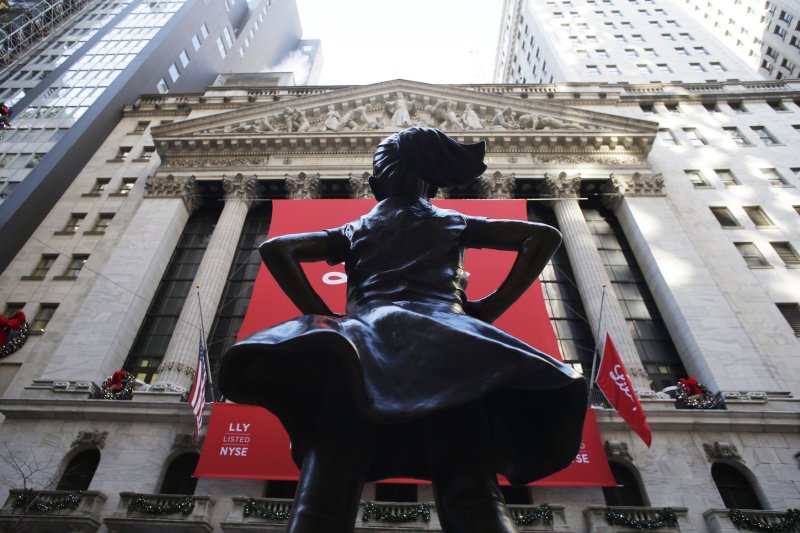The Fearless Girl statue, a symbol of female strength in entrepreneurship, is seen in front of the New York Stock Exchange on Wall Street in New York City. File Photo by John Angelillo/UPI |
License Photo
Oct. 8 (UPI) -- Shutdowns during the coronavirus pandemic may create short-term costs for global economies but they will likely lead to faster recoveries, a new report from the International Monetary Fund said Thursday.
The IMF World Economic Outlook found that economic lockdowns -- which include limiting mobility, wearing face coverings and following distancing protocols -- have "substantially" reduced the spread of the virus.
"Lockdowns must be sufficiently strict to curb infections, thus suggesting that stringent and short-lived lockdowns could be preferable to mild and prolonged measures," the group wrote in a blog post.
The report, which analyzed the economic effects in 128 countries, heavily criticized arguments that prioritize economic health over restrictions to control the virus.
"The effectiveness of lockdowns in reducing infections, coupled with the finding that infections can considerably harm economic activity because of voluntary social distancing, calls for re-considering the prevailing narrative about lockdowns involving a trade-off between saving lives and supporting the economy," the IMF wrote.
"This characterization of lives vs. livelihoods neglects that effective lockdown measures taken early during an epidemic may lead to a faster economic recovery by containing the virus and reducing voluntary social distancing."
The report said targeted policy interventions, like strengthening unemployment benefits and supporting paid leave for parents, are critical to protecting at-risk populations from greater economic inequality.
The group also called for more support for women who have been affected by the economic impact of COVID-19. It said women saw a steeper economic drop off from 30 days before restrictions began to 30 days after.
"This suggests that women carry a disproportionate burden in caring for children, which may jeopardize their employment opportunities," the IMF said.















